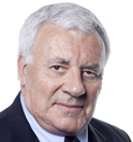All the 2014 investment forecasts have been made and it shouldn’t surprise Switzer Super Report readers that stockbrokers and investment managers think it will be another good year for share investors. This may well be so: several indicators look favourable, interest rates are low and the real estate market is pulsing with confidence.
The guru review
But investors should be aware several influential overseas investment giants have concerns about the medium-term health of investment markets. Bill Gross, managing director of $2 trillion manager PIMCO, recently mused about the investment approach of what he called “investment laboratories” such as his group, Jeremy Grantham’s GMO and Ray Dalio’s large hedge fund group Bridgewater.
PIMCO worries about the uncertain future from low interest rate policies and the potential realisation that investment markets can’t keep rising in such an environment. For those seeking a timing hint, Gross can’t be definitive: the disillusionment might be gradual rather than sudden – but he is adamant if economic policies can’t produce the growth the markets are expecting, investment managers will move away from traditional asset classes.
At Bridgewater, Ray Dalio – fresh from a 2013 result, which saw Bridgewater’s two mega hedge funds underperform – thinks it’s going to be hard to produce added value (or alpha) in future. He says rising asset prices will cause equity returns to average out at 4% over the next 10 years. Despite his group’s hundreds of specialists, which analyse every conceivable piece of data, Dalio says: “I think going forward most investors are not going to be able to produce alpha.”
GMO’s Jeremy Grantham, who is a value investor in underpriced asset classes, worries about another bubble, fed by a resumed housing boom in the US. GMO says share markets are rising despite disappointing growth and will probably continue to rise under the Fed’s stimulus. Grantham thinks the market could rise 20% to 30% in the next one or two years . . . before the inevitable bust. Over the next 7-year forecast period, he is forecasting negative real returns.
So what do investors do?
GMO argues, over the Grantham’s summary: “Be prudent and you’ll probably forego gains. Be risky and you’ll probably make some more money, but you may be bushwhacked and, if you are, your excuses will look thin.”
These are the views of some of the smartest investment groups, using lots of brain power, but when it comes to precise timing in the markets, few people can get it entirely right – hence Grantham’s final remarks.
Of course other factors influence the Australian share market: the local economy, interest rates, corporate earnings plus China. But these may have less influence if there is a major global meltdown. It’s already apparent from a few days in January where the New York market has gone into a brief funk, followed by Australia, that these are edgy times.
For private investors, there’s still no alternative strategy to stock picking – finding undervalued stocks – and investing for dividends and safe, steady growth. Plus diversification across all asset classes, including even unpopular ones like global markets.
Internationally, for instance, there have been very good, long-term returns from the Platinum Group’s international fund – more than 13% per annum since inception almost 19 years ago – which shows local investor Kerr Neilson can match it with some of the international big names. The younger Magellan Group has also performed brilliantly in recent years. At a time when big investment managers are concerned whether company earnings can rise to validate higher PE ratios, the consolation for investors is that both these groups are stock pickers seeking undervalued stocks and markets.
A final warning: chasing higher returns by using leverage to invest in assets can be risky when the music stops. Leverage can spoil even a good investment and too much reliance on borrowed funds can turn even a reasonable investment into a potential disaster.
Important: This content has been prepared without taking account of the objectives, financial situation or needs of any particular individual. It does not constitute formal advice. Consider the appropriateness of the information in regards to your circumstances.
Also in the Switzer Super Report:
- Peter Switzer: Invest more as the dollar dives
- Paul Rickard: Our growth-oriented stock portfolio review
- James Dunn: Five small caps for 2014
- Rudi Filapek-Vandyck: Buy, Sell, Hold – what the brokers say

